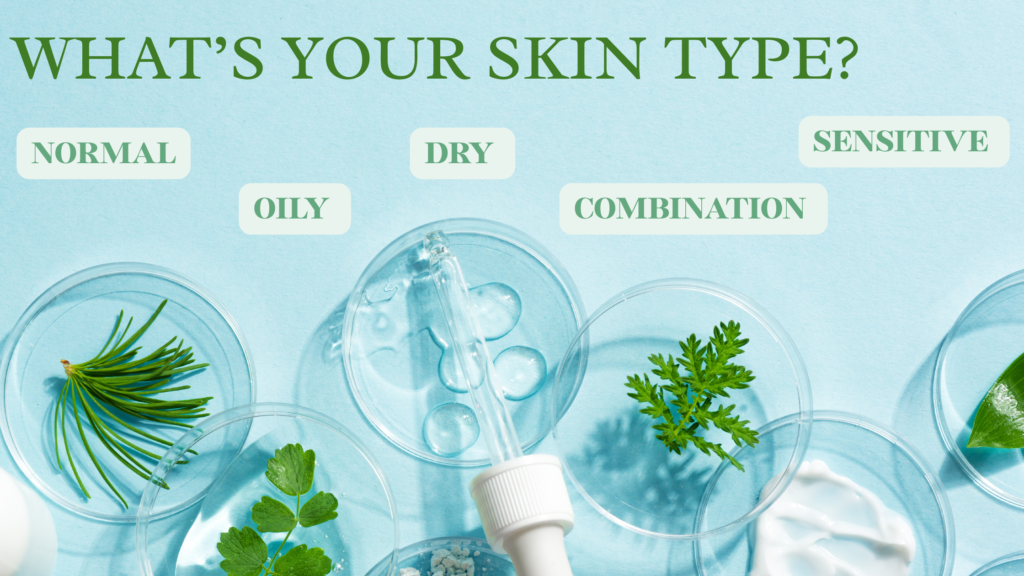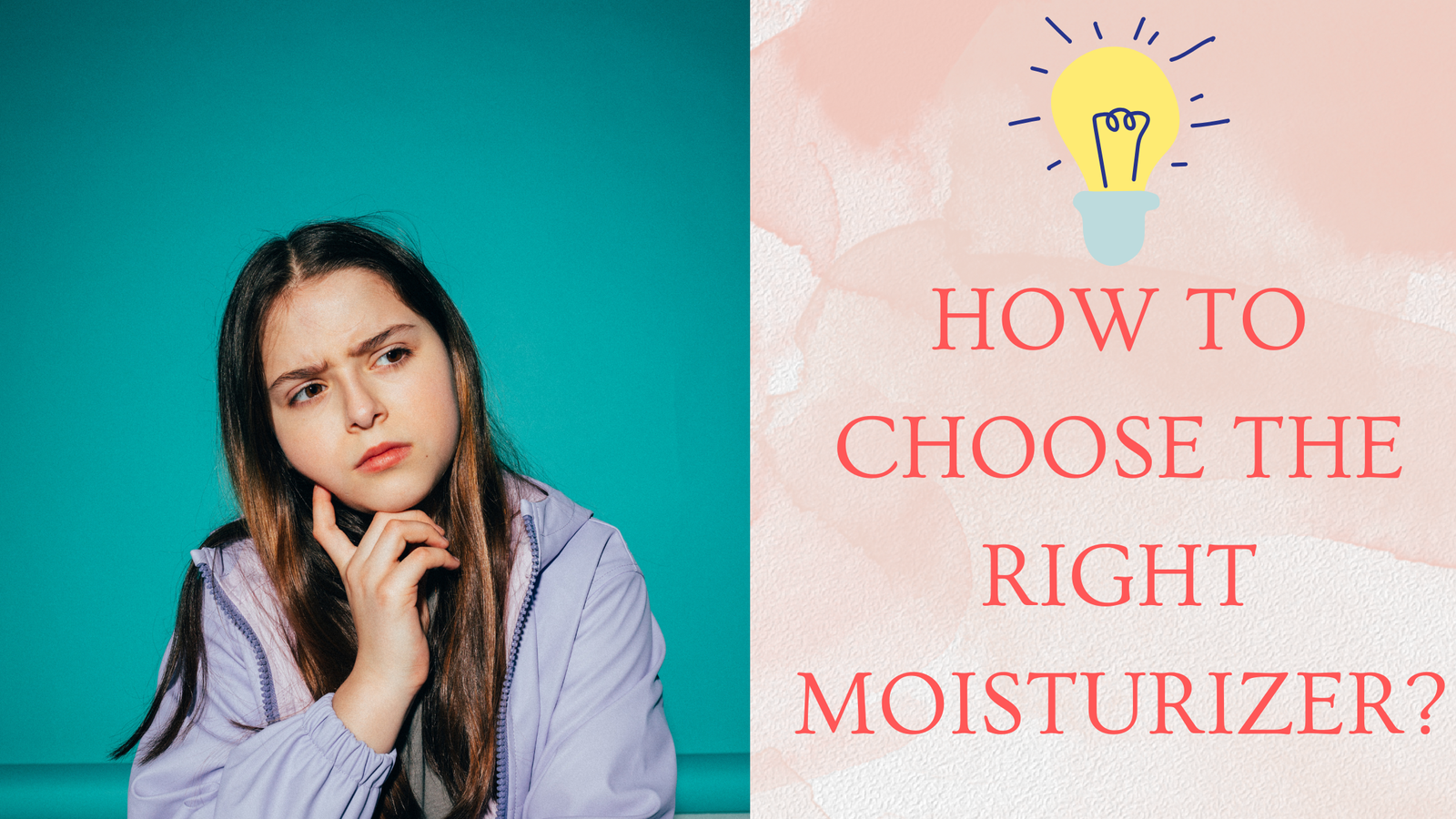Table of Contents
Introduction
We’ve all been through the massive struggle to find the right moisturizer for our skin type. There are so many options in the market, which one is right for your skin?
This article will help you understand various types of moisturizers and what makes them different. By the end of this article, you will be able to make an informed decision about what kind of moisturizer will suit your skin and its needs!
Why Use a Moisturizer?
- Moisturiser is a crucial part of your skincare routine, regardless of your skin.
- It acts as a protective barrier for your skin, keeping it hydrated, moisturized, and healthy.
- With the right product, you can improve the texture of your skin, hydrate it, and even treat some skin problems.

Understanding Your Skin Type
- Normal Skin – Balanced skin, that is neither too oily nor too dry.
- Oily Skin – Overproduction of oil, particularly in the T-zone can cause greasy skin and breakouts.
- Dry Skin – Tight, rough, flaky, or irritated skin that is frequently made worse by cold temperatures or dehydration.
- Combination Skin – A mixture of oily and dry areas, typically with an oily T-zone and dry or normal cheeks.
- Sensitive Skin – Skin prone to irritation, redness, burning, or itching in response to certain products or environmental factors.
Types of Ingredients Used in Moisturizers
- Humectant – Works by drawing hydration to your skin’s surface. Humectants, like hyaluronic acid and glycerine, offer a lightweight formulation that helps to keep your skin looking plump, youthful, and supple.
- Occlusives – These are present in a lot of oil-based creams and ointments, and help prevent trans-epidermal water loss (TEWL) by forming a barrier of protection over your skin. When combined with humectants, occlusives like petrolatum can assist your skin retain moisture.
- Emollients – These ingredients can be helpful for those with rough, uneven skin since they improve the suppleness, elasticity, and smoothness of your skin. Emollients, such as dimethicone and humectants, are frequently found in moisturizing lotions, gels, and creams.
- Topical Antioxidants – Moisturisers sometimes include ingredients to lessen oxidative cell damage. Oxidation is a process in which a chemical substance changes under the influence of oxygen, often with harmful effects. Vitamin E and C are two such ingredients that have antioxidant effects.
Choosing the Right Moisturizer for Your Skin
Normal Skin –
Normal skin requires a lightweight, non-greasy formulation that helps maintain balance. Opt for a gel-based or cream moisturizer with a smooth texture. Look for a mix of hydrating ingredients –
- Glycerine: Provides moisture.
- Hyaluronic acid: Provides deep hydration without feeling heavy.
- Ceramides: Strengthen the skin’s barrier and lock in moisture
Oily Skin –
Oily skin produces excess sebum, but it still requires moisturizer. Choose the ones that are lightweight, non-comedogenic, and oil-free to hydrate without clogging pores.
Gel-based formula or water-based lotions are ideal for oily skin as they hydrate without feeling greasy. Avoid products that feel heavy on the skin.
Ingredients to search for include –
- Hyaluronic acid: A hydrating ingredient that doesn’t add oil.
- Niacinamide: Helps to regulate sebum production and minimize the appearance of pores.
- Glycerine: Offers hydration without heaviness.
Dry Skin –
Dry skin requires extra hydration and moisturization to fight flakiness and tightness. The best creams to use for long-lasting hydration are rich, thick ones.
Avoid moisturizers that contain alcohol as they can dry out the skin. Ingredients to look at include –
- Shea butter: Deeply moisturizing and soothing.
- Squalane: A lightweight but highly moisturizing oil.
- Petrolatum or Dimethicone: Forms a protective layer that locks in moisture.
Combination Skin –
A moisturizer that treats both dry and oily areas without making either worse is necessary for combination skin. For dry regions, use a solution that is lightweight and moisturizing enough, without making the oily parts feel greasy.
A gel-cream hybrid product is often a good choice for combination skin because it has a light texture but still offers hydration.
- Glycerine and Hyaluronic acid: These will hydrate your skin without making it greasy.
- Non-comedogenic oils: Such as jojoba oil or rosehip oil, can balance oil production and soothe dry patches.
Sensitive Skin –
Sensitive skin needs extra care and soothing. Choose a moisturizer that doesn’t contain harsh chemicals that could irritate the skin, alcohol, or fragrances. Choose ingredients that are anti-inflammatory and calming.
Look for fragrance-free, hypoallergenic, and gentle formulations. Lightweight creams or gels are often best, as they hydrate without being too heavy.
Some ingredients to look for –
- Aloe vera: Soothes irritation and provides hydration.
- Chamomile: Known for its calming properties.
- Ceramides: Help restore the skin’s protective barrier.
Additional Tips
- Patch Test: Always perform a patch test before applying a new product to your entire face. This helps prevent allergic reactions or irritation.
- Don’t Forget About Your Neck: Your neck needs moisture, too! Don’t just apply your moisturizer to your face.
If you are looking for a chemical-free, all-natural moisturizer, try this DIY Moisturizer! You can make it at home, using simple ingredients – Best Homemade Moisturizer For All Skin Types – 100% Natural Moisturizer by Preity Prerna
What to Avoid in a Moisturizer?
- Harsh Alcohols: Alcohol-based moisturizers can strip moisture from the skin and irritate, especially for dry or sensitive skin.
- Fragrances: While they may smell nice, fragrances can cause irritation and allergic reactions in sensitive skin.
- Mineral Oil or Petrolatum: These ingredients can clog pores in oily or acne-prone skin.
Conclusion
Choosing the right moisturizer involves understanding your skin type, knowing the key ingredients, and using products best suited to your skin’s needs. Whether you have oily, dry, combination, or sensitive skin, selecting the proper moisturizer can help you maintain hydrated and moisturized skin. Always modify and tailor your skincare to your unique needs and skin concerns, and don’t be afraid to switch up products as your skin’s needs evolve.
Do not forget to check out Preity Prerna Store for 100% natural solution for your skin and hair!
Explore More
- Hydrating vs Moisturizing in Skincare – What is the Difference?
- Homemade Night Cream For Glowing Skin | Preity Prerna
- Basics Of Skin Care: The Complete Guide For Beginners
- Best Homemade Skincare: Make Your Own Skincare Products
- 10 Skincare Habits That Can Transform Your Skin: Preity Prerna
- How to Treat Wrinkles Naturally at Home? 100% Natural Remedy by Preity Prerna
- What is Collagen? Best Ways to Boost Collagen at Home
If you’re not a part of our amazing family, you’re missing out. Join us today and start your natural skincare and haircare journey and get help from other community members.



